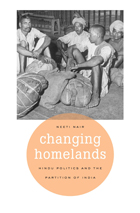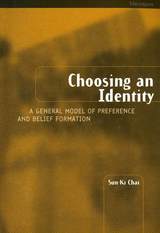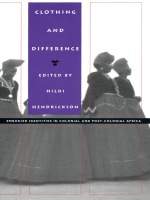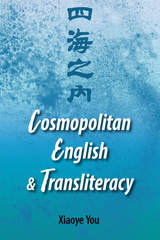6 start with C start with C

Changing Homelands offers a startling new perspective on what was and was not politically possible in late colonial India. In this highly readable account of the partition in the Punjab, Neeti Nair rejects the idea that essential differences between the Hindu and Muslim communities made political settlement impossible. Far from being an inevitable solution, the idea of partition was a very late, stunning surprise to the majority of Hindus in the region.
In tracing the political and social history of the Punjab from the early years of the twentieth century, Nair overturns the entrenched view that Muslims were responsible for the partition of India. Some powerful Punjabi Hindus also preferred partition and contributed to its adoption. Almost no one, however, foresaw the deaths and devastation that would follow in its wake.
Though much has been written on the politics of the Muslim and Sikh communities in the Punjab, Nair is the first historian to focus on the Hindu minority, both before and long after the divide of 1947. She engages with politics in post-Partition India by drawing from oral histories that reveal the complex relationship between memory and history—a relationship that continues to inform politics between India and Pakistan.

This book provides a general model of preference and belief formation, addressing the largest unresolved issue in rational choice theories of action. It attempts to play a bridging role between these approaches by augmenting and modifying the main ideas of the "rational choice" model to make it more compatible with empirical findings in other fields. The resulting model is used to analyze three major unresolved issues in the developing world: the sources of a government's economic ideology, the origins of ethnic group boundaries, and the relationship between modernization and violence.
Addressing theoretical problems that cut across numerous disciplines, this work will be of interest to a diversity of theoretically-minded scholars.
Sun-Ki Chai is Assistant Professor of Sociology, University of Arizona.

Grounded in the insights of anthropology and history and influenced by developments in cultural studies, these essays investigate the relations between the personal and the public, and between ideas about the self and those about the family, gender, and national groups. They explore the bodily and material creation of the changing identities of women, spirits, youths, ancestors, and entrepreneurs through a consideration of topics such as fashion, spirit possession, commodity exchange, hygiene, and mourning.
By taking African societies as its focus, Clothing and Difference demonstrates that factors considered integral to Western social development—heterogeneity, migration, urbanization, transnational exchange, and media representation—have existed elsewhere in different configurations and with different outcomes. With significance for a wide range of fields, including gender studies, cultural studies, art history, performance studies, political science, semiotics, economics, folklore, and fashion and textile analysis/design, this work provides alternative views of the structures underpinning Western systems of commodification, postmodernism, and cultural differentiation.
Contributors. Misty Bastian, Timothy Burke, Hildi Hendrickson, Deborah James, Adeline Masquelier, Elisha Renne, Johanna Schoss, Brad Weiss

Codependent Forevermore is thus an insider's look at the world of people "in recovery" and the society that produced them. Through extensive interviews with CoDA members, case studies, and the meetings she attended regularly, Irvine develops a galvanizing perspective on contemporary Americans' sense of self. She explores the idea that selfhood is a narrative accomplishment, achieved by people telling stories to themselves and about themselves. She shows how Alex, Paul, Liz, and many others create a sense of self by combining elements of autobiography, culture, and social structure all within the adopted language of psycho-spirituality.
By following the progress and tribulations of CoDA members, Irvine gets to the heart of widespread American conceptions of relationships, selfhood, and community. Amidst the increasingly shrill criticism of the Twelve Step ethos, her reasoned and considered analysis of these groups reveals the sources of both their power and their popularity.

To penetrate the opaque, to lift the weight and let the self escape its frozen image—this is the essence of psychotherapy, a process described with extraordinary grace and warmth in this book. In remarkably candid portraits of patients at odds with themselves, Leston Havens takes us through the wonders and rigors of psychological healing and shows us what it really means, in immediate, human terms, to come to life.
We are all captives of the images we carry with us—and those we inspire—and therapy seeks to expose the relation of these images to a deeper psychological life, to free the captive from labels and crippling assumptions. Havens views this process through the multiple lenses of literature, art, and psychiatry. In rich clinical portraits, short on jargon and rigid techniques and long on empathy and wisdom, we encounter ordinary people struggling with the trials of their own existence: marriage and divorce, sexual identity and fulfillment, illness and death. We meet a woman imprisoned by eager responses to her beauty and helpfulness, a proud lawyer in thrall to conventional expectations, a dying man becoming more and more alive as he approaches death.
Through these very personal stories, Havens explores the meaning of psychological health—how it can be recognized through the filter of images and ideas, protected from their distorting power, and encouraged to flourish. The result is a revealing and deeply moving explication of the process of self-discovery as it emerges from the life story that therapy can tell.

Despite the vast number of multilingual speakers in the United States and the pervasive influence of globalization, writing studies in this country is still inextricably linked to a nationalistic, monolingual English ideology. In Cosmopolitan English and Transliteracy, Xiaoye You addresses this issue by proposing that writing studies programs adopt a cosmopolitan perspective. Emphasizing local and global forms of citizenship and identification, You merges a humanistic vision with the rigor of social science, arguing that linguistic and cultural differences can be explored to recover human connections normally severed by geographical and semiotic borders.
You examines several areas of writing affected by globalization. He then turns to the composition classroom, highlighting the challenges and possibilities of crossing cultural boundaries in academic discourse before introducing a pedagogy aimed at fostering American students’ translingual and transcultural sensibilities. Included is a model for training writing teachers in the context of globalization, which aims to help instructors gain practical knowledge about the needs and resources of multilingual writers through communication technologies and cross-cultural partnerships.
By introducing cosmopolitan perspectives into the composition classroom, You challenges traditional assumptions about language, identity, and literacy as they relate to writing studies. Innovative and provocative, Cosmopolitan English and Transliteracy charts a new way forward for writing programs, with a call to focus on global rather than national identity.
READERS
Browse our collection.
PUBLISHERS
See BiblioVault's publisher services.
STUDENT SERVICES
Files for college accessibility offices.
UChicago Accessibility Resources
home | accessibility | search | about | contact us
BiblioVault ® 2001 - 2024
The University of Chicago Press









